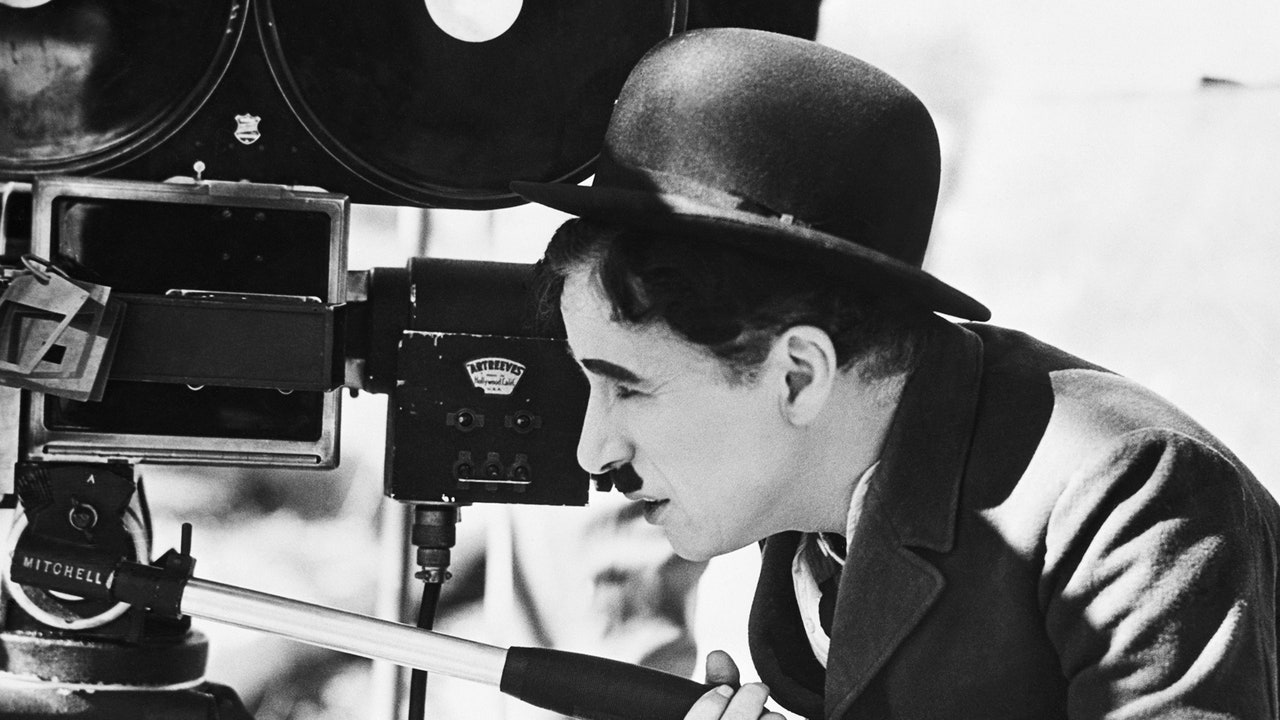Charlie Chaplin was once the biggest star in the world, beloved for his silent-film classics in which he played a sweet-natured, trouble-prone “Little Tramp.” But in his middle age, his political outspokenness—particularly his starkly liberal views—began to attract hostility from the US government and others who saw the British-born comedian as an disreputable outsider with no right to criticize his adopted homeland.
Scott Eyman’s new book, Charlie Chaplin vs. America, delves into the conflict that ultimately turned public opinion against Chaplin, and drove him into exile from the United States. In this excerpt, Eyman explores how accusations leveled against him by a 23-year-old actress named Joan Berry, who sued him for child support, claiming her child, Carol Ann, was also his daughter, were leveraged against him by the media and the government. A blood test during the case had determined Chaplin could not have fathered the little girl, but a Los Angeles jury disregarded that evidence and found him responsible for her paternity nonetheless due to his romantic history with her mother.
Eyman begins with an example of one particularly strident newspaper writer who used the case to rouse anger against Chaplin.
By all odds the most vitriolic columnist of his period or, for that matter, of any period, was Westbrook Pegler, a merchant of hate who subsisted on a diet of rage seasoned with contempt. For years his favorite target had been Eleanor Roosevelt, but after World War II she was out of the White House. Pegler decided to pile onto an easier target.
Pegler wrote that, “In Hollywood there is some doubt whether Chaplin is a Communist in the sense that he has ever joined the party. My guess would be that he is not because party members as rich as Chaplin are subject to demands for money and Chaplin is notoriously cheap, so stingy in fact that an unfortunate 23 year old girl whom he had seduced and who was pregnant was run out of town like a victim of the Gestapo, with only a few dollars and a one-way ticket out of Beverly Hills.”
Pegler was just warming up, but he got to the point: “And should he ever undertake to become a citizen for some reason of expediency, loyalty being out of the question, that record should be sufficient to thwart him on the protest of any citizen with a decent regard for the privilege of citizenship . . . I believe it is doubtful that [Chaplin] will be seen in a new movie in the United States, although, if we should deport him for cause after more than 30 years, he might be used by the Communists in some other land for missionary films to be shown in the Balkans and Latin America. . . . All matters considered, I do not understand why he has not been deported to his native England even though England might regard this as a deliberately unfriendly act. . . Through two wars involving his native country, Chaplin has hidden in Hollywood and, through this one, when hundreds of other movie actors too old for fighting, traveled overseas with camp shows, Chaplin still stayed in Hollywood. His most noteworthy public activity during that time was his merciless persecution of a girl less than half his age who was betrayed by her hopes of a career, and his subsequent appearance as defendant in a trial which revealed him as a vicious old man, still as nasty at 56 as he had been throughout his earlier years.”
Pegler would eventually strangle in his own bile when he indulged in anti-Semitism so rank that the only publishing outlet he had was the John Birch Society. By that time, Chaplin was no longer in America.




